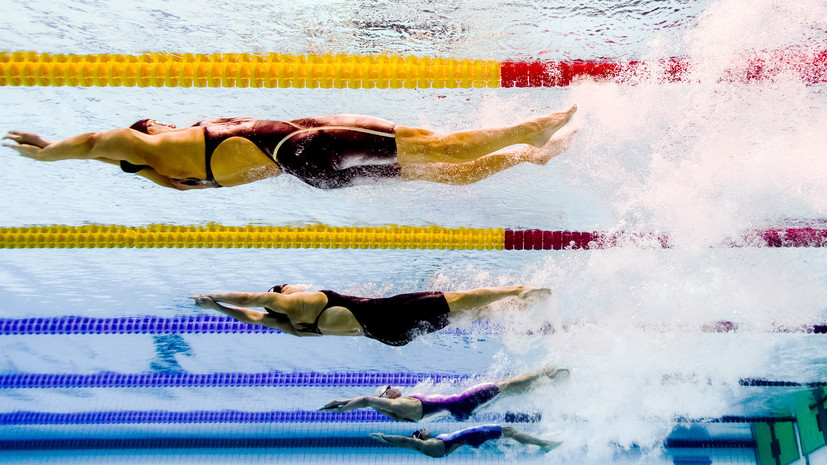From December 11 to December 16, the World Short Course Swimming Championship organized by the International Swimming Federation (FINA) is held in Guangzhou, China. Compared to the world championships in water sports, where athletes swim in the Olympic 50-meter pool, these competitions have always been in the background - many miss the start due to low prestige, and won in braces in pools with the length of the track twice as short .
The atmosphere of the championship of the planet in short water is hardly festive. The tournament is taking place against the backdrop of a conflict between FINA and the leading swimmers. Athletes openly express dissatisfaction with the organization's policies and massively sue it.
The reason for the crisis was the pressure of FINA on athletes who expressed a desire to take part in the new commercial tournament Energy for Swim. It was scheduled to take place in late December in Turin and become the first start of the International Swimming League (ISL) - the brainchild of the Ukrainian billionaire Konstantin Grigorishin, who announced his desire to make swimming a commercially successful sport.
Many swimming stars — eight Olympic champions and several prize-winners of the world championships — gathered to participate in Energy for Swim. They included well-known Russian athletes, such as Clement Kolesnikov and Anastasia Fesikova. However, all of them received warnings from FINA - any participation in unauthorized competitions will be punished by disqualification for up to two years.
The new swimming tournament attracted swimmers with the opportunity to earn good money. The prize fund of the two-day Energy for Swim tournament was supposed to be $ 2.1 million. This is only $ 400 thousand less than the swimmers played out for the eight days of the World Aquatics Championships in 2015 and 2017. While FINA is constantly increasing its income, the level of prize money for athletes remains the same, and this causes irritation among swimmers.
Athletes also have long been amazed by the fact that the international federation does not fully reveal the commercial potential of swimming. The organization holds only the World Cup in open water at the beginning of autumn, which is constantly criticized for the inconvenient calendar, the accuracy of starts with an excessively wide geography and a low prize fund.
This year an unpleasant story was added to the problems of the World Cup. FINA advertised the tournament using the image of the Olympic champion and world record holder Adam Petey from the UK, attributing to him enthusiastic words about the competition. Petey openly expressed dissatisfaction with FINA, after which he became the headliner of Energy for Swim and refused to speak at the World Championships for a short distance.
FINA does not conduct convenient and constant competitions at the Olympic distance, and this is a big omission. Nowadays, it is difficult to imagine athletics without the Diamond League, and figure skating without the Grand Prix series, while swimming has no such alternative that suits the main stars of this sport.
Nevertheless, any attempts by athletes to independently make money in FINA are nipped in the bud. The organization was ready to give ISL the right to hold competitions, but only after paying a huge compensation of $ 50 million. The parties did not agree, and then FINA threatened the athletes with disqualifications for participating in any ISL tournament, after which Energy for Swim had to be canceled.
In response, ISL filed a lawsuit with FINA, accusing the organization of the pressure that led to the cancellation of the competition in Turin.
“It is obvious to us that FINA intends to make every effort to destroy our attempts to create a new global competitive league. This approach violates the antitrust laws of the European Union and the United States. We use all possible legal methods to protect our interests. Interests of swimmers and swimming in general, ”said Grigorishin.
Athletes did not stand aside; three-time Olympic champion Katinka Hossu, along with American swimmers Michael Andrew and Tom Shields, filed a complaint against FINA in connection with a violation of US law. Later, two-time Australian champion Kate Campbell went to court.
In the sports world there is already a precedent when this situation ended with the victory of athletes over an international federation. A year ago, the European Commission banned the International Skating Union to exclude athletes who decide to compete in unauthorized competitions.

